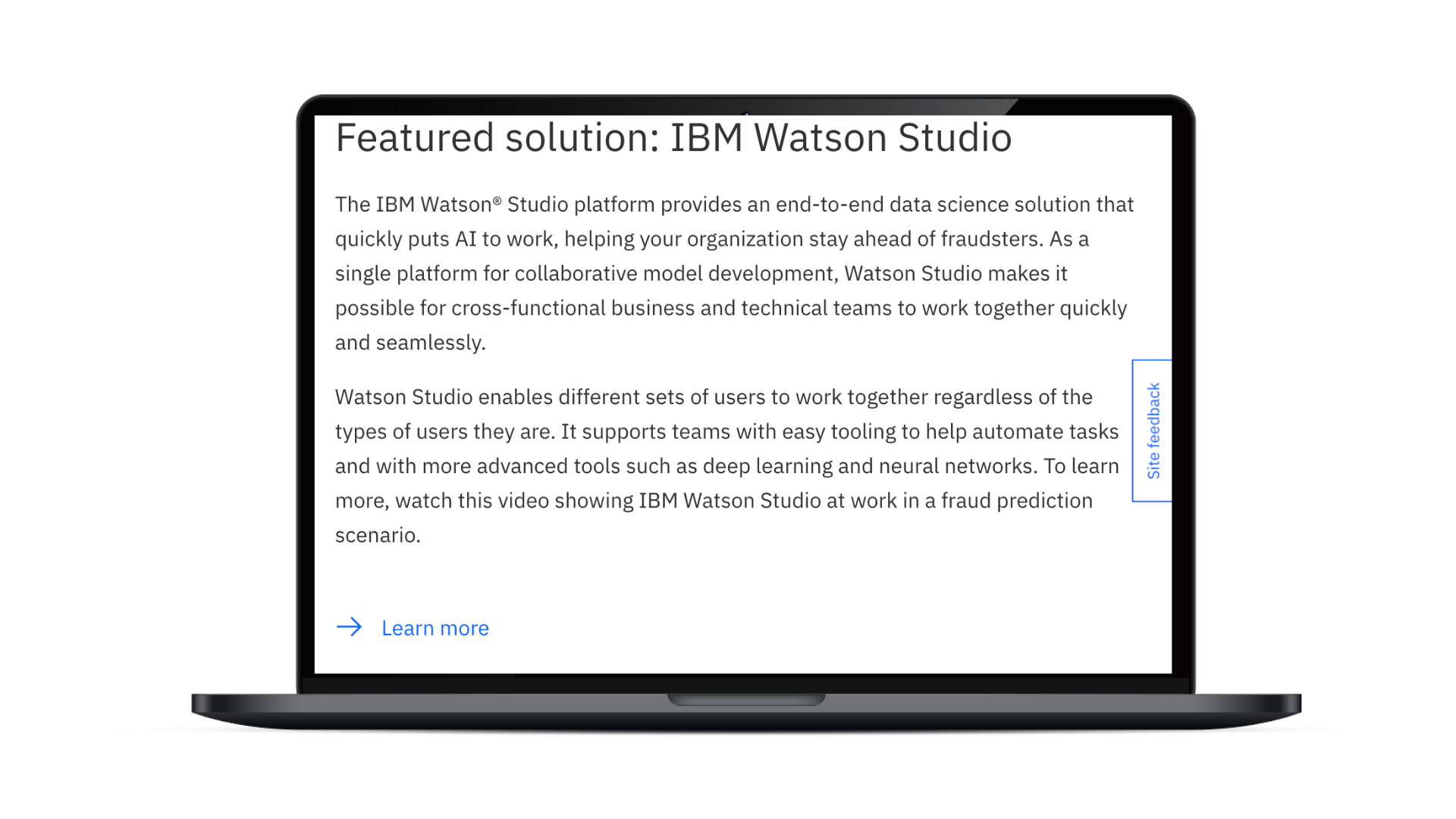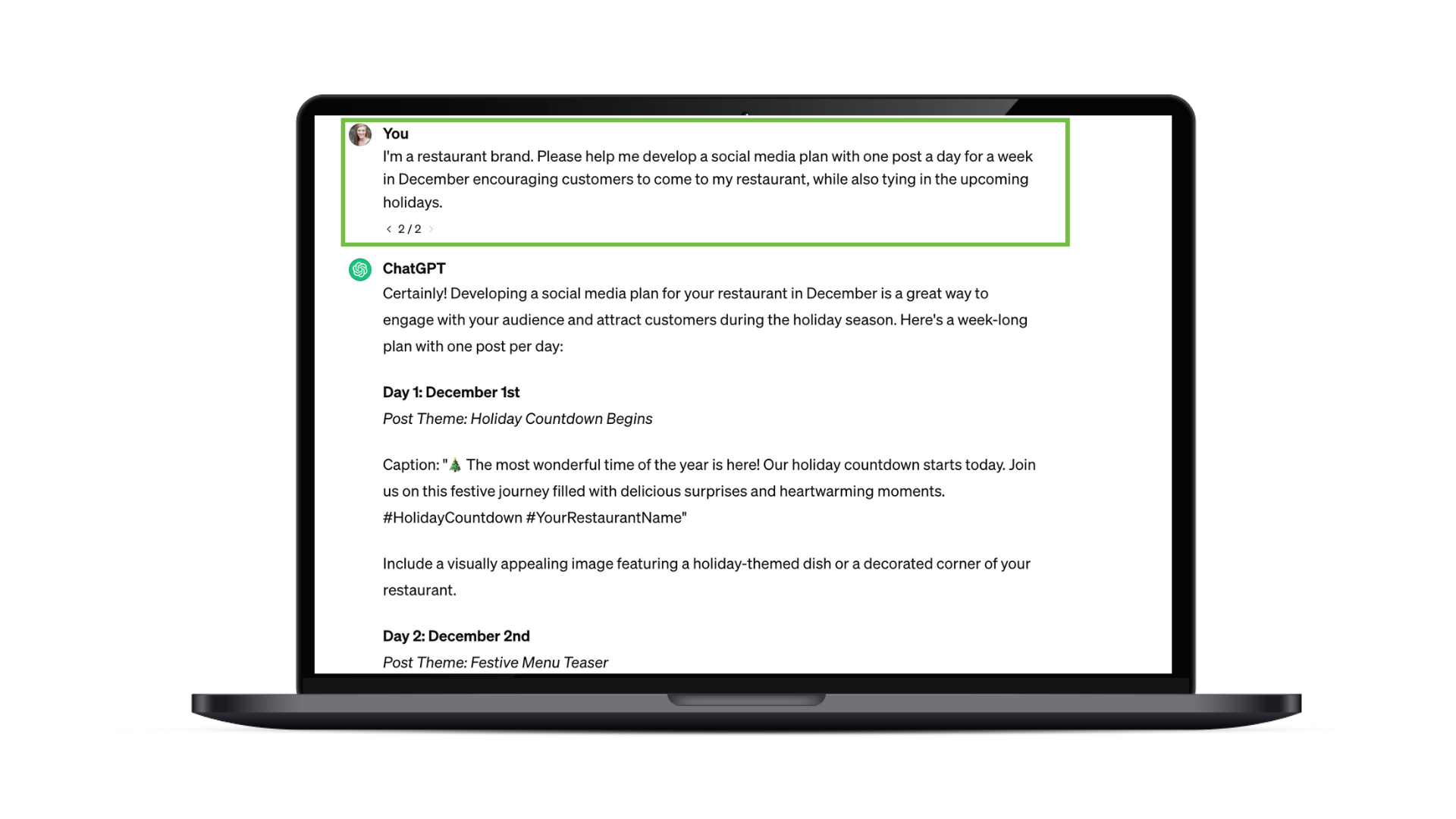How Negative Reviews Impact Your Business (and How to Fix Them Fast)
6 Ways Your Multi-Location Brand Can Prepare For the Future of AI

6 Ways Your Multi-Location Brand Can Prepare For the Future of AI
2023 has been the year of artificial intelligence (AI). A recent study from SOCi found that 95% of marketers acknowledge the potential impact of AI, with 65% having already dabbled in its implementation. While we have seen significant growth in AI’s capabilities this year, we expect them to continue to expand.
As a marketer, you’re likely starting to map out your plans for 2024. As you’re doing so, it’s time to plan for the future of AI, and this blog can help! We reveal how your multi-location brand can prepare for future AI advancements and ensure you’re at the top of your game going into the new year.
AI saves marketers time and effort while often improving results, so if you’re not already leveraging AI, it’s time to start!
Let’s get into it.
1. Educate and Train Your Teams
To prepare for the future of AI, it’s essential to ensure that both local and corporate teams understand how to leverage AI effectively. To start, you can send out a quick survey to gauge how confident your teams are using AI. It will also unveil areas of opportunity and learning.
Recent SOCi data found that 70% of marketers feel overwhelmed by AI’s rapid development, but it’s essential to see where your brand stands.
Regarding training, numerous resources are available for your brand to use to train your teams. For instance, Amazon just released its AI Ready initiative, which aims to provide free AI skills training to two million people by 2025. As a part of the initiative, Amazon has released eight new generative AI and AI training courses that anyone can use. These courses are aligned to in-demand jobs.
Additionally, IBM offers an AI Foundations for Everyone course that may be helpful. You can also keep up with thought-leaders, like us here at SOCi, who break down the latest AI advancements in our weekly Local Memo blog series.
There’s no lack of resources when it comes to AI training. It’s just a matter of understanding your team’s current understanding of AI and ensuring they get the proper training.
2. Prepare Your Data
In the world of marketing, data is everything. Good and clean data is the foundation of any successful AI marketing strategy. As you begin to use more AI in your marketing efforts, ensuring your brand’s data is clean and organized is critical.
Ask yourself and team the following questions:
- Do you have a unified data repository to train AI and Large Language Models (LLMs) effectively?
- Do your application programming interfaces (APIs), which facilitate communication and information between software systems, run smoothly?
- Are there tools you can consolidate to make software processes easier?
In the future, your brand will need to train and integrate your AI using its customer data, insights, and performance metrics. Having your data ready to go ahead of time will make this process easier down the line.
3. Establish Your Brand’s Standpoint on AI
As your brand gets deeper into the use of AI, it’s crucial to have a solidified stance on the technology. Determine your company’s philosophy on AI beforehand so you have a response ready to go if and when asked about it by employees or customers.
One survey found that 82% of consumers are somewhat or very concerned about companies’ usage of AI could potentially compromise their online privacy.
Due to consumers’ concerns, many brands hesitate to fully commit to leveraging AI because they worry about how it will impact their customer base. To help curb this fear, your brand should proactively address customer concerns about AI usage and whether or not it will impact data privacy (Hint: it won’t if done correctly).
In the example below, IBM highlights how they use AI for fraud detection and prevention and provides resources for the consumer to learn more.

Transparency goes a long way, and as long as your brand is clear about how it’s using AI, most consumers will respect your brand’s decision.
It’s also worth noting that a human touch is still needed with AI, and highlighting that point to your consumers is critical.
Check out our blog on AI and consumer trust for additional insight on building authenticity while using AI.
4. Experiment and Optimize
When leveraging AI, it’s essential to start small. For instance, if your brand hasn’t used AI yet, you can start by leaning on generative AI to develop ideas for social content or a response to a negative review.
If you start incorporating AI into multiple areas of your marketing strategy right away, you may start to feel overwhelmed.
Additionally, it’s difficult to understand how AI impacts your strategy if you are testing it in too many areas simultaneously. As you begin to experiment, it’s important to set attainable goals.
What is the purpose of your brand using AI? Are you trying to publish content more frequently but don’t have the resources to develop said content? Do you want to reduce the time spent doing manual and tedious tasks?
Again, we recommend starting small. For instance, if you’re a restaurant brand, try having ChatGPT devise a social media plan for you! Other industries can leverage generative AI tools similarly.

Understanding your goals ahead of time will allow you to determine whether or not your efforts were successful. Start with something easily measurable. You can add on from there if you see positive results.
Check out our CMO’s Planning Guide for Navigating AI Transformation in 2024 for more ideas about how to experiment with AI.
5. Measure Your Success
As a marketer, you understand the importance of measuring your success. So, while you can set goals, they don’t mean anything until you measure your performance.
To do so, you must determine which key performance indicators (KPIs) your brand will use to track the performance of your AI initiatives.
For instance, if you’re using generative AI to respond to reviews, are you looking at how many more reviews your brand is responding to? Or the amount of time saved for review response? If generative AI writes your social content, how do your engagements compare to posts written entirely by a human?
Our recent research report, The Value of AI-Assisted Review Response, How to Gain Cost Savings and Efficiency, can provide additional inspiration around KPIs for AI efforts.
Once you’ve established your KPIs, it’s essential to report on them on a bi-weekly, monthly, or quarterly basis. You can then review the results and make adjustments based on performance.
By measuring your performance now and optimizing accordingly, you’ll be set up for success as future AI advancements occur.
6. Find a Solution to Support Your Efforts
As we’ve mentioned, AI’s capabilities will continue to grow in 2024 and beyond. To set your multi-location brand up for success, finding a tool that can support your AI endeavors is important. Finding a tool that can integrate AI solutions seamlessly into your existing digital marketing strategies is vital.
SOCi is here to help! Through SOCi Genius, SOCi has started adding a layer of AI automation to our marketing solutions, beginning with Genius Reviews. The added benefit of SOCi? Its ability to scale marketing efforts across locations while staying on brand.

Additionally, SOCi Genius leverages advanced data science, best-in-class generative AI, “on-brand” training models, and leading localization and automation tools. Together, these abilities help you make data-driven decisions that fuel more innovative marketing strategies and increase ROI.
For a more in-depth look at how SOCi can help your brand navigate the future of AI and increase marketing efficiency, request a demo today!








